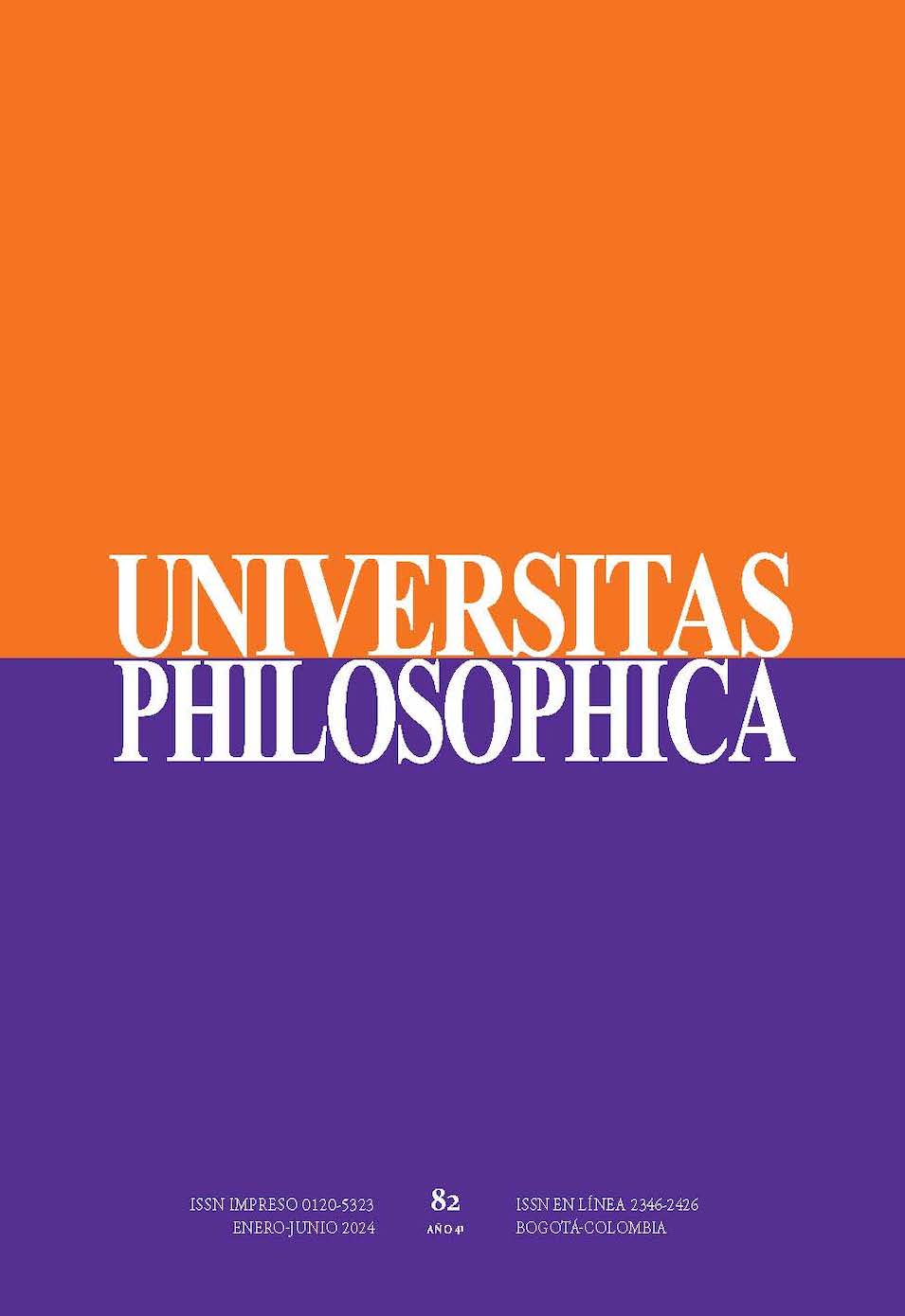Resumen
Los términos educación y formación son cercanos, pero diferentes. La educación responde a un saber disciplinar concreto dentro de una estructura o sistema propio, mientras que la formación tributa a lo humano desde horizontes no necesariamente sistemáticos. El siguiente artículo tiene como punto de partida la hipótesis de que la formación es un efecto, que solo puede ser concebido a posteriori; dicha hipótesis servirá de acicate para proponer una lectura del Menón de Platón que logre evidenciar algunas condiciones del diálogo que posibilitan el efecto formativo. En primer lugar, se darán algunos presupuestos para comprender la hipótesis; luego, se establecerán dos condiciones que posibilitan el proceso formativo: el λόγος y el acompañamiento (cada una de estas condiciones tendrá, a su vez, una división que las explicitará); por último, se presentará, a modo de mapa conceptual, si hay efecto formativo o no en los personajes que refiere el diálogo.
Bustamante, G. (2019). La formación como efecto. Editorial Aula de Humanidades.
Bustamante, G. (2023). Actualidad de la filosofía de la educación. Universidad Pedagógica Nacional.
Declercq, C. (2021). Educar más que instruir: la urgencia de una educación integral en la enseñanza superior del siglo XXI. En O. Garzón-García, K. Romero-García, & A. Verdú-Vázquez (Coords.), Innovaciones tecnológicas con TIC en educación (pp. 3680-3699). Dykinson S. L.
Faure, E., Herrera, F., Kaddoura, R., Lopes, H., Petrovski, A., Rahmena, M., & Champion, F. (1973). Aprender a ser. La educación del futuro (C. Paredes Castro, Trad.). Alianza editorial.
Ley 115 de 1994. Por la cual se expide la ley general de educación. 8 de febrero de 1994. D. O. 41.214.
Liddell, H., Scott, R., & Jones, H. (1889). Λόγος. A Greek-English Lexicon. https://logeion.uchicago.edu/%CE%BB%CF%8C%CE%B3%CE%BF%CF%82
Lledó, E. (1998). El silencio de la escritura. Espasa-Calpe.
Marrou, H. (1985). La historia de la educación en la Antigüedad (Y. Barja de Quiroga, Trad.). Ediciones Akal.
Monzón, M. Y. (2015). La educación y la formación en la Educación Normal. IE Revista de Investigación Educativa de la REDIECH, 6(10), 18-27. https://doi.org/10.33010/ie_rie_rediech.v6i10.167
Murillo, L. A., & Farieta, A. (2023). El método socrático y la posibilidad de una pedagogía socrática. En (A. M. Rosas Rodríguez, & M. G. Arias Rey (Eds.), Entre filosofía y pedagogía. Consideraciones sobre la enseñanza de la filosofía en educación media (pp. 17-40). Editorial Uniagustiniana. https://doi.org/10.28970/9789585498921.01
Nails, D. (2002). The People of Plato: A Prosopography of Plato and Other Socratics. Hackett Publishing Company, Inc.
Olivieri, & J. L. (1983). Introducción, traducción y notas [Menón]. En Platón, Diálogos II. Gorgias, Menéxeno, Eutidemo, Menón, Cratilo (pp. 275-337). Gredos.
Ortiz, A., & Sánchez, J. (2020). Educar, instruir y formar: una configuración tríadica. Plumilla Educativa, 26(2), 63-101. https://doi.org/10.30554/pe.2.4040.2020
Platón (1983). Diálogos II. Gorgias, Menéxeno, Eutidemo, Menón, Cratilo (J. Calonge Ruiz, E. Acosta Médez, F. J. Olivieri, & J. L. Calvo, Trads.). Gredos.
Platón (1981). Diálogos I. Apología, Critón, Eutifrón, Ion, Lisis, Cármides, Hipias menor, Hipias mayor, Laques, Protágoras. (J. Calonge, E. Lledó, C. García, Trads.). Madrid: Gredos.
Sánchez-Prieto, J. (2009). Más allá del “giro lingüístico”: Koselleck y los nuevos horizontes de la historia intelectual. Revista Anthropos, 223, 20-38.
Skliar, C. (2012). La escritura. De la pronunciación a la travesía. Asolectura.
Thorp, T. (2015). Till Human Voices Wake Us and We Drown: The Aporia-fish in the Meno. En J. Bell, & M. Naas (Eds.), Plato’s Animals: Gadflies, Horses, Swans, and Other Philosophical Beasts (pp. 60-76). Indiana University Press.
Vargas-Guillén, G. (2020). El deseo y la formación (2da Ed.). Editorial Aula de Humanidades.
Vasco-Uribe, C. E., Martínez-Boom, A., & Vasco-Montoya, E. (2012). Educación, pedagogía y didáctica: una perspectiva epistemológica. En G. Hoyos-Vásquez (Ed.), Enciclopedia Iberoamericana de Filosofía Vol. 29, Filosofía de la educación (pp. 99-127). Editorial Trotta.
Vierhaus, R. (2014). Separata Formación (Bildung) Primera Parte. Revista Educación Y Pedagogía, XIV(33), 7-23.
Zuckert, C. (2009). Plato’s Philosophers: The Coherence of the Dialogues. The University of Chicago Press.

Esta obra está bajo una licencia internacional Creative Commons Atribución 4.0.
Derechos de autor 2024 Eduardo Salcedo Ortiz


